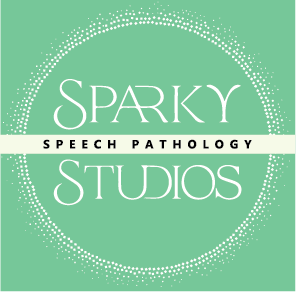Our Services
Telehealth
Telehealth in speech pathology makes it easier for people of all ages to access speech and language services. Clients can get evaluations and therapy through video calls without needing to meet in person.
One key advantage of telehealth is flexibility; clients can book sessions from home, saving time and enabling more frequent therapy. This is particularly helpful for individuals with mobility issues or those in remote areas with limited access to services.
Telehealth also allows speech pathologists to use various digital tools, like interactive games and apps, to keep clients engaged and help them improve their skills. Caregivers can play a more active role too, providing further support outside of therapy.
Privacy is crucial, and secure platforms are used to protect personal information, so clients can focus on their therapy without worries.
Though there are challenges, like technical problems and fewer hands-on activities, many therapists have adapted their practices to ensure sessions remain effective and engaging. Continuous training helps them stay updated with best practices.
In summary, telehealth in speech pathology offers a modern, convenient way for people to get support for speech and language needs, combining expert care with the benefits of technology, no matter where they are.
Mobile Services
Mobile speech pathology offers a flexible and convenient solution for individuals needing speech and language support. Through this approach, speech pathologists can deliver services directly to clients in their preferred environments, whether that's at home, school, or a local community space.
This personalised method allows for tailored interventions that take into account the client's daily routines and interactions, making therapy more relatable and effective. Mobile speech pathologists can assist with a variety of challenges, including speech delays, language disorders, communication difficulties, and social skills development.
Moreover, mobile services can cater to diverse populations, including children, adults, and the elderly, ensuring that everyone can access the support they need without the barriers of travel or scheduling conflicts. The use of technology can enhance these sessions, incorporating teletherapy options for clients unable to meet in person.
With a friendly and approachable style, mobile speech pathologists focus on building strong relationships with their clients, fostering a positive atmosphere for growth. This not only helps in achieving communication goals but also boosts confidence and encourages a love for learning.
Assessments
Speech pathology assessments are essential tools for identifying communication and swallowing disorders. During these assessments, we gather information through various methods, including interviews, standardised tests, and observational analyses. This comprehensive approach allows for a deeper understanding of our client’s abilities and challenges, which assist us in developing a tailored intervention strategy. By focusing on both strengths and areas needing support, speech pathology assessments pave the way for effective treatment plans that help clients achieve their communication goals.
Swallowing Assessments and Mealtime Management Plans
Speech pathologists play a crucial role in the assessment and management of dysphagia, a condition that affects an individual's ability to swallow. During a dysphagia assessment, the speech pathologist evaluates the individual's swallowing function through comprehensive methods, including clinical assessments.
These assessments help identify the specific swallowing difficulties a client may experience, whether it’s in the oral, pharyngeal, or oesophageal phases of swallowing. Based on their findings, the speech pathologist develops a tailored mealtime management plan that may include strategies to modify food textures and fluid consistencies, positioning techniques during eating, and exercises to strengthen the swallowing muscles.
In addition to developing these plans, speech pathologists educate clients and their families about safe swallowing practices. This can encompass training on recognising signs of swallowing difficulties and providing guidance on food preparation and mealtime organisation to enhance the safety and enjoyment of meals.
Speech pathologists often collaborate with other healthcare professionals, such as dietitians and occupational therapists, to ensure that all aspects of a client’s health and well-being are addressed. By fostering a compassionate and supportive approach, they help individuals with dysphagia regain confidence in their ability to eat and drink, ultimately improving their quality of life.





